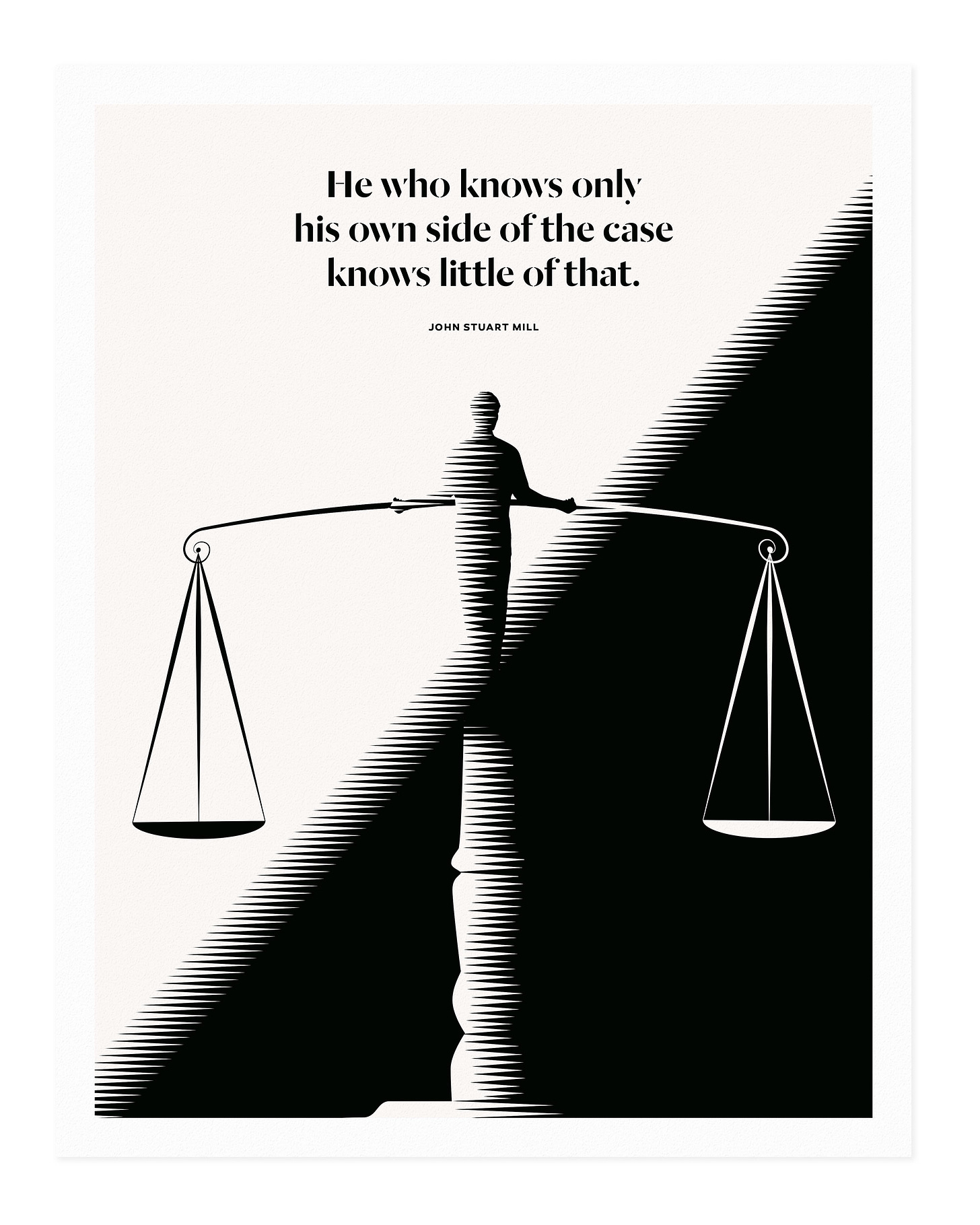
John Stuart Mill on Embracing Dissidence
"He who knows only his own side of the case, knows little of that. His reasons may be good, and no one may have been able to refute them. But if he is equally unable to refute the reasons on the opposite side; if he does not so much as know what they are, he has no ground for preferring either opinion." - John Stuart Mill
As I quietly sit here at my desk, I can catalog a storm of sensory information — the hum of music, the glowing screen, the tactile pressure and rhythmic clicking of the keyboard, the pressure of the chair, the texture and compression of my clothes, that tension in my shoulders, the flashes of memories, the pull of gravity — you get the point. Forget about glancing out the window, even the boring, static surroundings of my little office provide a constant onslaught of sensory data. How do we filter it all out?
As I understand it, the cortex decides what we should focus on and then signals to the thalamus what should be down-regulated. As a result, we can narrow our focus to a tiny band of all of the information our brains receive and by doing so have a shot at writing a decent blog post.
This of course comes at some cost, and sometimes we filter out essential information. As in the case of a driver focused on their text messages, favoring one set of facts at the expense of others can be a fatal error. So it is with social information as well. If we can barely make sense of our immediate surroundings, how can we poor creatures ever hope to make sense of each other? As important as those texts may be, the aforementioned driver could probably use a copilot with a different perspective.
In On Liberty, John Stuart Mill wrote that "the peculiar evil of silencing the expression of an opinion is, that it is robbing the human race; posterity as well as the existing generation; those who dissent from the opinion, still more than those who hold it. If the opinion is right, they are deprived of the opportunity of exchanging error for truth: if wrong, they lose, what is almost as great a benefit, the clearer perception and livelier impression of truth, produced by its collision with error."
Mill makes a moral case for freedom of expression, but he also makes a practical case for it. Making sense of the world requires constant reexamination. When factions of society fixate on monolithic interpretations of the world and down-regulate all dissenting views, I suppose we can nail that all-important message sent; then again the message received may just be a head-on collision with reality.
I think we need to re-learn how to listen to each other, but I’m open to other opinions.
About the Art
“This illustration depicts the border between two contrasting spaces as a tightrope. The walker's balance pole becomes the balance of a scale weighing both sides of the argument dispassionately.”
Art by Evan Robertson. All rights reserved.


